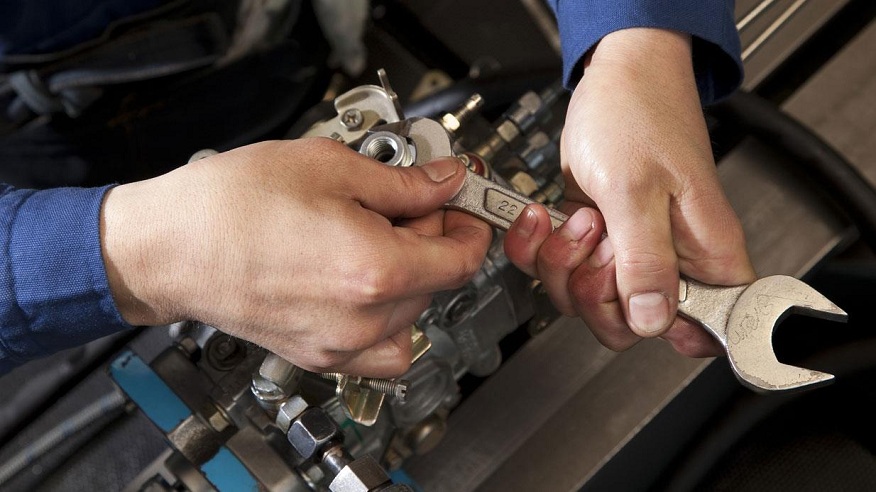General News Blog
My WordPress Blog
My WordPress Blog

Saudi Arabia has been actively building its industrial and manufacturing capabilities aligned with strategic visions like Vision 2030. This necessitates significant investments in procuring heavy-duty machine equipment across vital sectors. Adopting good machine equipment that meets quality and performance benchmarks is crucial for Saudi industries to reap the full benefits. This article explores how good machine tool and equipment deliver operational excellence and enable Saudi organizations to enhance productivity, efficiency, safety and global competitiveness.
As a leading Middle Eastern economy, Saudi Arabia is expanding its non-oil private sector through large-scale development of industries like manufacturing, construction, energy, logistics and defense. Billions are being invested under the National Industrial Development and Logistics Program to establish specialized industrial zones and parks across the Kingdom focused on automotive, renewable energy equipment, pharmaceuticals, machinery and other priority sectors. This rapid industrialization requires procuring first-rate machinery on a massive scale. Robust, precision-engineered good machine equipment is essential to create world-class manufacturing capabilities in Saudi Arabia.
Good machine equipment refers to machinery that meets highest benchmarks of engineering quality, durability, accuracy, reliability, productivity and operational safety. For machine tools, factors like build quality, precision rating, stability, vibration control, power and efficiency are crucial. Materials like high-grade casting iron, steel and alloys ensure sturdiness. For any industrial equipment, good quality hinges on conformance to design specifications, safety codes and quality control during manufacturing. Saudi industries are increasingly demanding high-quality machinery certified to international standards.
Benefits of Good Machine Tools and Equipment for Saudi Industries
Investing in premium machine tools and equipment offers multifaceted benefits for Saudi industries:
Good machines like CNC machining centers gives fine tolerance control, enabling Saudi manufacturers to produce sophisticated high-precision parts. Automotive and aerospace component plants need such equipment for top-grade output. Sturdy, well-engineered machines also minimize defects and prevent quality issues in the final products.
Machine equipment from reputed makers like Mazak, Okuma, Komatsu built ruggedly using quality materials are durable even under 16-24 hours of daily operations. Tight component tolerances and robust designs ensure reliability over decades of operation in harsh conditions. Breakdown risks are minimized, enhancing Saudi plant uptime and output.
When working with large, complex machinery safety is paramount. Good quality equipment incorporates multiple safety features like emergency stop buttons, sensors, lockouts etc. Saudi industries are legally required to ensure worker safety through such mechanisms. Built-in safety also lowers risks of equipment damage.
Better designed machines optimize power consumption and minimize heat losses through features like servo motors. They also enable disciplined use of coolants, lubricants and compressed air. Good machine equipment thus helps Saudi industries achieve sustainability goals and cost efficiencies.
Although premium equipment has higher upfront costs, it lowers operating total cost of ownership in the long run. Reliable equipment has less downtime, saving lost production costs. Long maintenance cycles and replacement part longevity also reduce expenses. Good machines designed for easy serviceability further minimize maintenance overheads for Saudi plant owners.
By adopting the latest, well-engineered machine tools and equipment, Saudi production facilities across metals, plastics, oil and gas, chemicals and other verticals can achieve global manufacturing excellence. This will boost the “Made in Saudi” tag and enable more local production. Aligning with Saudi’s own engineering and R&D capabilities will be key for long-term success.
Investing in quality, energy-efficient equipment allows Saudi firms to minimize environmental footprints. Features like low-power standby modes, reusable component materials, bio-degradable lubricants and closed-loop cooling reduce waste. Good HVAC and dust control mechanisms also ensure cleaner indoor industrial environments. Adhering to ISO 14001 standards while procuring machines enables Saudi industries to meet ecological goals. For sustainable growth, acquiring only eco-friendly, optimized equipment should become the norm.
Smart sensors, IoT connectivity, data analytics and machine learning can transform Saudi production facilities into futuristic factories of the future. However, this Industry 4.0 journey requires machines with embedded software, automation-readiness and data capture abilities. Good equipment that meets cybersecurity standards and integrates well with digital systems unlocks immense efficiency gains over time. Saudi firms must factor in smart machine capabilities for long-term competitiveness.
Standardized, programmable equipment machines deliver highly consistent output irrespective of operators. This repeatability results in predictable processing parameters and product quality. Whether for alloy precision or plastic molding accuracy, consistency is vital. Homogenized machinery also eases maintenance, operator training and adapting best practices across Saudi production sites. Reliably consistent equipment maximizes process optimization.
Sophisticated machines like CNC machining centers allow quick changeovers between product configurations. Modular equipment design also enables adding or swapping components conveniently. This equipment agility grants Saudi manufacturers flexibility to switch production runs based on real-time demand shifts. The ability to rapidly adapt to market dynamics provides a competitive edge for Saudi industries.
High-performing equipment that runs smoothly with minimal noise and vibration provides a comfortable workplace. Smart ergonomic features reduce operator fatigue. Superior in-machine safety prevents injuries. All this boosts workforce morale, engagement and productivity. Saudi firms should consider worker needs while procuring equipment. Healthier, satisfied workers will be a key driver for Saudi Arabia’s manufacturing achievements.
To fully benefit from equipment investments, Saudi Arabia must build in-house maintenance and repair expertise. This avoids costly dependency on foreign technicians. Robust training programs in partnership with machine OEMs are vital. Over time, the Kingdom can even begin localizing more of the spare parts and components supply chain. In-house machine service capabilities ensure Saudi industries’ self-sufficiency.
To summarize, deploying good machine equipment in saudi arabia built to high engineering quality standards is a wise investment for Saudi Arabian industries looking to be globally competitive. Optimal machine reliability, precision, safety and efficiency are essential to maximize manufacturing excellence and “Made in Saudi” output. Although quality machinery requires greater upfront expenditure, the total cost benefits are significant. With its excellent growth trajectory, Saudi Arabia will continue seeing robust demand for the best available equipment across industrial sectors.